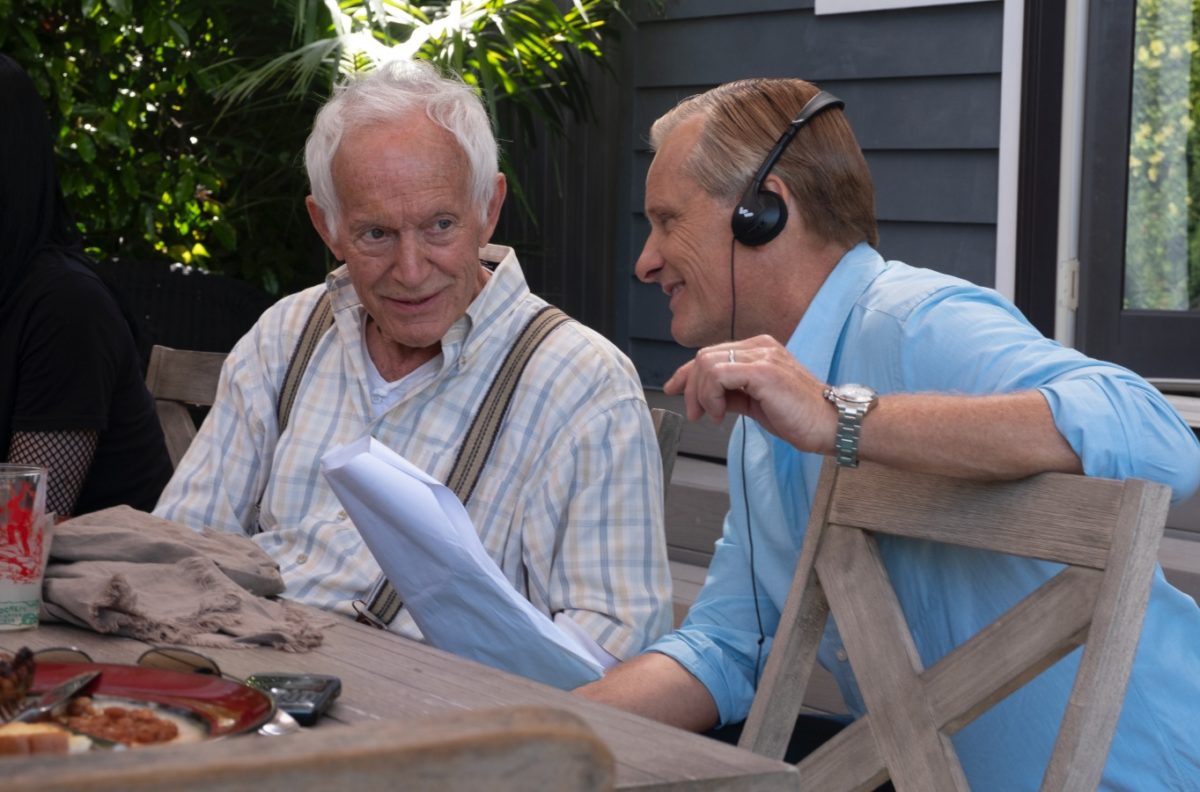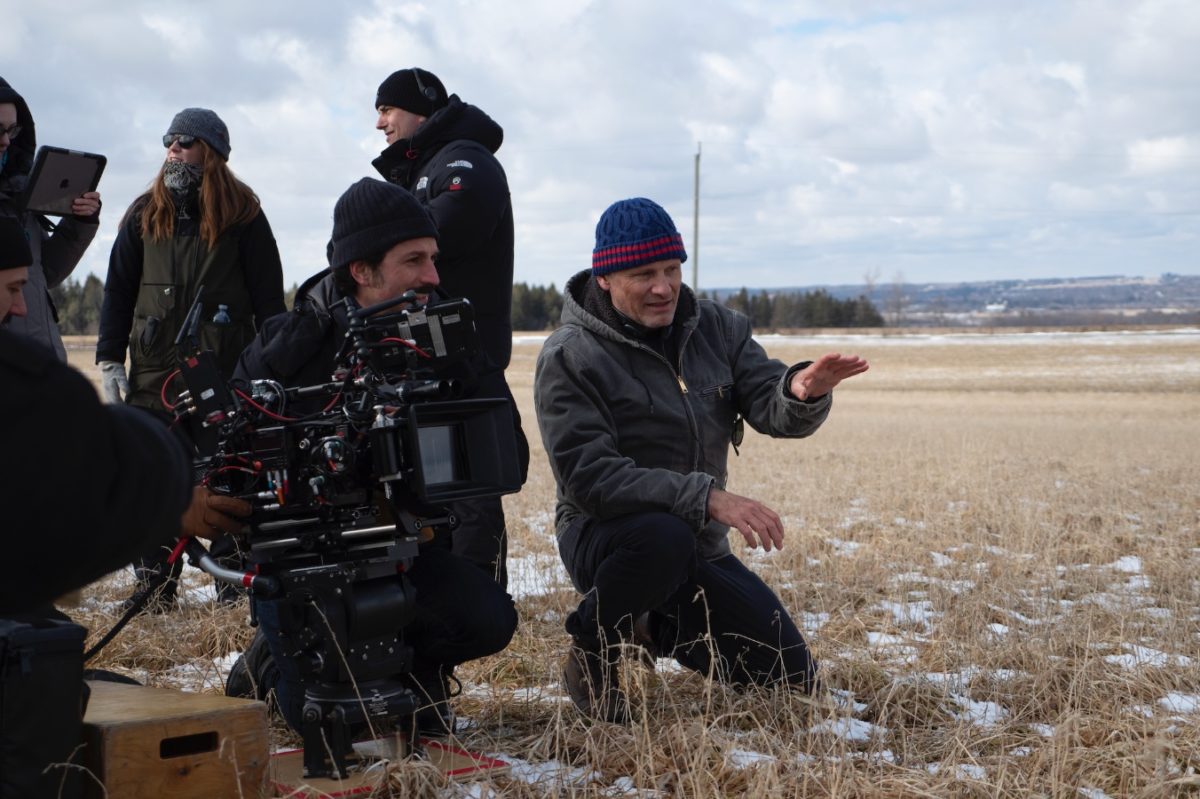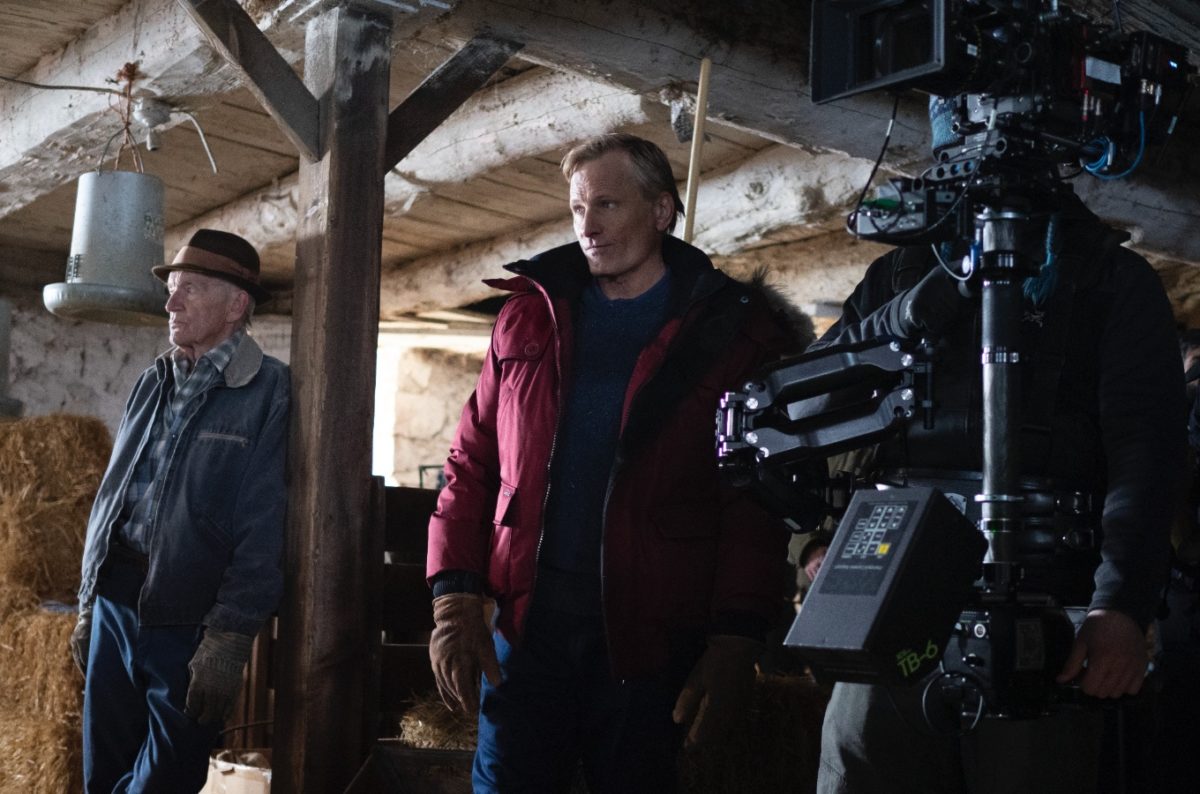In Falling, Viggo Mortensen plays John, the long-suffering son of Willis (Lance Henriksen), an alcoholic who falls apart at the seams when anything threatens his way of life. The story follows Willis’ final years, as his lifetime of mistakes and boozing dovetail with early symptoms of dementia. The illness makes Willis experience hallucogenic episodes, where the facts of his life and terrors of his dreams blend into one. Despite being abused by his father for years, John chooses to help Willis during this final chapter of his life.
With the film now arriving in theaters and digitally, I had an intimate conversation with Mortensen about the nature of dementia, how the disease’s effects confuse caregivers, and how showing grace to people with this illness is an act of service––not unlike the understanding we offer our friends. We also discussed Lance Henriksen’s powerhouse performance, straight actors playing gay characters, the aftermath of Green Book winning Best Picture at the 2019 Academy Awards, and more.
The Film Stage: I watched the movie last night with my family. We actually took care of my grandmother who had Alzheimer’s for about six years. So this was like an intimate story for us.
Viggo Mortensen: Was she living in your house with you?
Yeah, she moved in with us.
That’s a tough thing. You learn a lot, right? Did you find that you learned that it was best not to correct her and just let her go with the things that she believed were real?
Yes, because she would have moments of clarity every so often where she would be totally aware of the world around her and her life. But she would drop back in and out and I would find that those moments were more frequent, the less you tried to correct her. So we let her brain work, how it works.
You’re sacrificing what you’d want them to sound like or be like, you have to give it up. Which in a way is what you should do with all your friends. You should serve them, not make them be the way you think they should be. But it’s a hard thing to do, especially with your mother or your grandmother.
You have a lifetime of expectations of them and suddenly the dynamic is not even different, but it’s out of your control. There isn’t even a give and take, it’s just give.
I had a lot of experiences with that. Both my parents and my stepfather, grandparents, aunts, uncles, both sides of the family. It’s just trial and error and learning how to negotiate it. Every day is a little different. You have to pay attention and be flexible and think on your feet. Yeah, it’s a difficult thing. It did help me write the character Willis––Lance Henriksen’s part––and his relationships with the rest of the family, especially his son and daughter, but we also wanted to do something that I haven’t really seen done all together well, even in the best of movies or plays about dementia and Alzheimer’s. They generally show them as being confused most of the time, and their point of view is confused. In reality, my experience is that it’s the observers that are more confused. The people with the disease are actually seeing and feeling what they’re seeing and feeling. It’s real for them. So there’s nothing to be confused about for them, unless you correct them, then it messes with them.

You were working on Falling around the same time that Green Book was having its run. After seeing what Peter Farrelly went through dealing with sensitive material, what made you want to make a movie about a gay son dealing with his father’s dementia?
I don’t know that the material in Green Book was particularly sensitive or more sensitive than any other story. I think most people realize, and we who made the movie certainly knew, and that should have been made clearer earlier, I suppose, to that small minority of people that were not wanting to give Pete Farrelly credit for what he accomplished as a writer and a director. Being that it’s a story that was based on a very real friendship, and real events, with very few liberties taken at all, but there was this small minority saying it’s not truthful to the period, those people weren’t friends, those things didn’t happen, etc. The dumbass in that story was the white guy. There was a steep learning curve for the character I played. But they both learned from each other. And the fact is, it was based on real events. So the people that really tried to do damage to the movie’s reputation during its run, as you say, and people still to this day are like, “Oh, is this the Green Book of this year?” As if it’s a stain to have been part of that movie, which is ridiculous. That very small minority was either unknowingly or knowingly misinformed and misinforming about the foundation of that story, and the friendship that it’s based on.
That was unfortunate, and very irritating, because we wanted to talk about the movie and the subject of racism historically and how things hadn’t still hadn’t changed enough by a longshot, as we’ve seen in the last couple of years—certainly, that’s evident. It was unfortunate that it happened, but the public, of all stripes, in all countries, reacted extremely favorably to the movie. I think––and I said so at the time––I think it’s a really good movie and it’s going to stand the test of time. I think it’s up there in the finest tradition of the best work from people like Preston Sturges and others. It’s a really well-made movie, period, and a valuable glimpse of a specific time in US history, with repercussions to this day and with lessons for this day. So it was unfortunate. As far as Falling goes, do I think that that’s going to be a problem?
You intimately know what Peter and everyone went through and how you were treated because you told the story.
I got shit for that, but why should I retreat? It was a great story, well told. The studio retreated for too long. It was an annoyance, but I’m open to talk to anybody about anything.
I was just curious because in Falling you are playing a gay character. What are your thoughts on straight men playing gay characters?
Why does that have to become clickbait? I don’t understand why that’s necessary.
I think we’re in a moment where issues surrounding identity are the number one topic of discussion.
I don’t want to shut down any conversation. All these conversations are great to have. There has to be some kind of conversation. We just can’t all just be in our corners saying “that’s wrong, that’s wrong” or not actually considering something on more than one level, the level you choose to look at, the lens you choose to see something through.
There’s obviously parts that I wouldn’t play. I wouldn’t have chosen to play Eric, the Asian American husband of my character played by Terry Chen. Why would I do that? Or why would I want to go play Malcolm X? That would be insane. But I don’t assume that gay actors would just want to play gay parts. I would never ask Terry Chen and I wouldn’t ask anybody what their sexual orientation was, or history when I’m casting a movie––as a director, why would I do that? People can assume they know everything about me, but they don’t necessarily and if they asked me, “Are you gay or partly gay, or have you ever been gay?” I would say it’s none of your business. If I didn’t think I was right for the part, I wouldn’t play it. I cast that movie as carefully as I could. And I think we have a really good cast and everybody’s right for their part.

For as much as dementia and Alzheimer’s is a disease of the mind, it’s like being trapped in your body. Sometimes they do have these lucid moments where they understand where they are, but the rest of the time, they’re kind of trapped and not able to communicate clearly, or they’re trapped in their feelings.
Or as you know, that initial phase, the first part of it is so hard, because you do go in and out. And you know that you’ve said some crazy things. That’s really hard for them, and for everybody else, but especially for them. I get what you’re saying, that makes sense. Trapped in your body. Like, you can’t control it. You don’t know when it’s gonna come back at you again, like a bad drug flashback or something, right?
I think Lance Henriksen did an incredible job of that, where he’s not quite sure, he knows something’s off sometimes. Then other times, he just made these really complicated transitions in personality look simple. The subtle transitions he made in and out of mental space, the way he listens differently at different times to different people, at different times of day. You’re referring to sundowning, all those things, he did that so elegantly and courageously in a way, he just went for it. He put himself in a vulnerable position––never tried to be liked, never wanted the audience to sympathize with him. He just seemed to be really going through these things.
Henriksen’s character is interesting because you have to pay attention to where his mind is at any given moment. Willis is angry about his life for most of the film, but then it gets amplified in those moments where sundowning makes him out of control. In those moments, he’s misunderstanding his own history. In the moment, in one outburst he will completely understand what he’s saying and who he’s insulting, and in the next will have no idea that he’s doing it.
That’s why I say it’s confusing to the observer, because there’s times where his son––who probably knows him better than anybody, my character––there’s times where he’s just not sure if his dad’s messing with him or he’s sundowning. Even though he knows him really well, you can’t always be sure. It’s a tricky thing. It’s like this game that keeps moving as you’re trying to play it and the rules keep changing all the time. It’s a difficult thing to, as you know from your own experience, to deal with for the caretaker.
I think it’s amazing what Lance did. Each time I see the movie––and I’ve seen it a lot of times, obviously thousands of times in the editing process, but also lots of Q&As I’ve been able to do with audiences, in some countries where I’ve been able to go and present it––at certain times in the past few months, it’s been amazing to see how people react to it and react to Lance’s performance. It’s wonderful actually to see, to hear things they say about it, and how they see that disease and a lot of people obviously have experience with it, dementia or Alzheimer’s, and hearing people’s stories constantly at Q&As. Even during the shoot, what crew members said was illuminating and encouraging and made us feel like okay, we’re telling a specific story about a specific family and a specific place and time, but there is a universal application. People understand that beyond the problem of dementia, the story of communication, conflict, polarization, all those things seem to be universal.

How is it that your character John is able to show his father Willis patience and grace after a lifetime of trauma from his father?
It’s a conscious choice. It’s not like he’s saintly, or better or worse than anybody else. As he says, in that one long scene in the kitchen, about a third of the way into the movie, “I have made myself a promise that I’m not going to do this with you anymore.” In other words, he’s done it before, “I’m not going to fight you and give as good as I get in terms of the volume and the intensity and the offensiveness of what you’re saying, I’m not going to do that.” Clearly, it’s gotten him nowhere in the past. One guy leaves or gets kicked out, basically, communication stops. Now he’s made this choice to take it, because he wants to help him. The man is now older, he does need help mentally and physically, whether he wants to admit it or not. But he probably won’t accept that help from anybody but John, and he might not even accept it from John, but he wants to give it a shot. I’m not saying that everybody has to do that. Each person makes their own decisions, like you made a decision to take in a family member because you could and you wanted to. Some other people might not do that. John makes it a choice. He says, “Well, if I don’t help, nobody’s gonna be able to help them. I’m gonna give it a shot. And I know that to help them, I’m gonna have to take a lot of crap and listen to a lot of offensive language and hurtful things.” And he tries to do it as long as he can.
On a writing level, it was a goal in terms of the narrative to create a particular kind of tension, particular kind of drama, that is not the usual drama, which is usually based on some kind of conflict between two parties going at each other. This one, it’s like John’s playing rope-a-dope, not in order to attack in the later rounds, but this is what’s going to work. So it creates this tension where things get stretched almost to the breaking point and then on to the breaking point. John can’t resist anymore.
Falling is now available digitally and in theaters.
